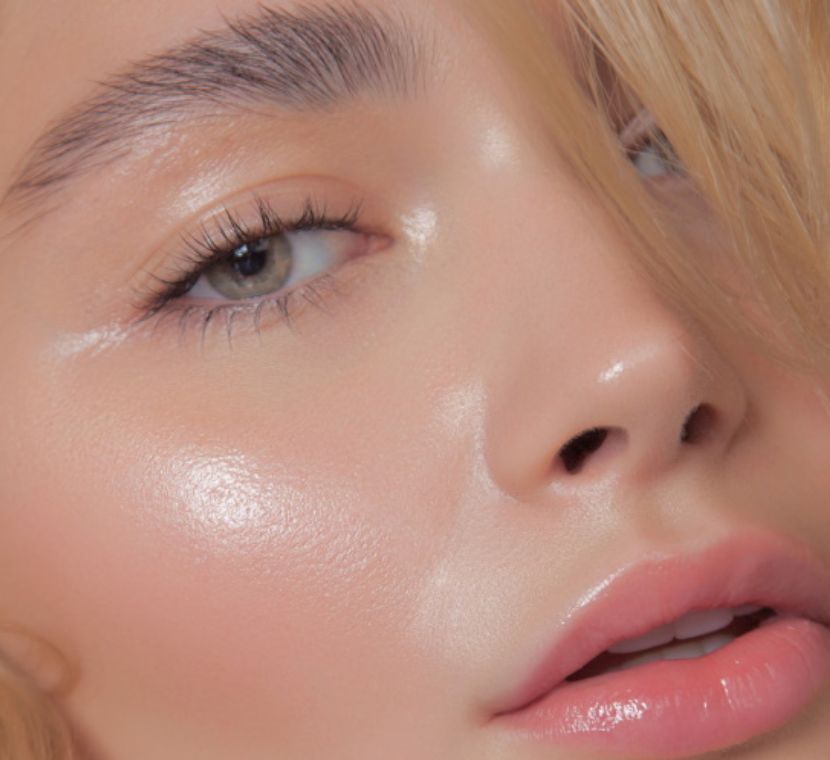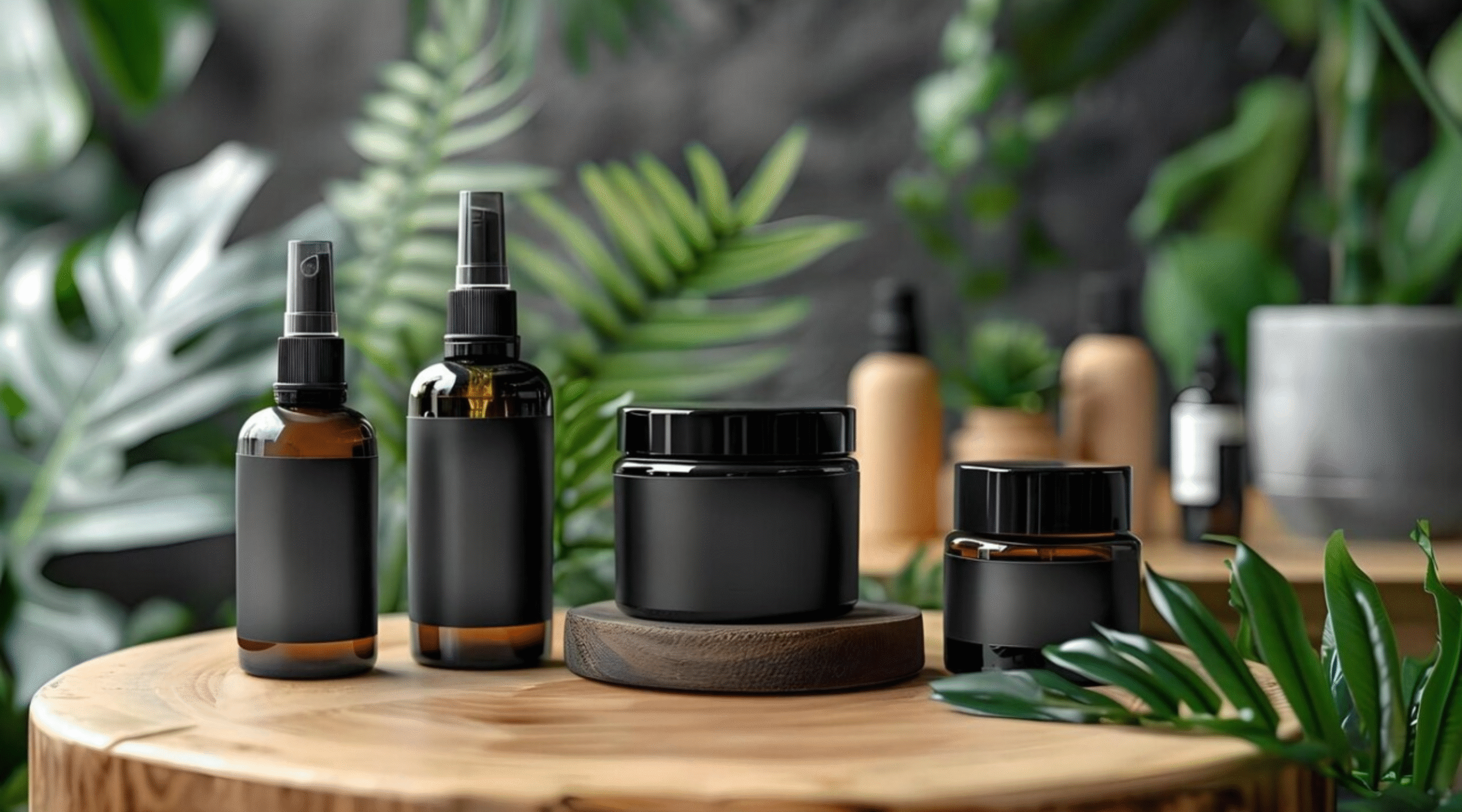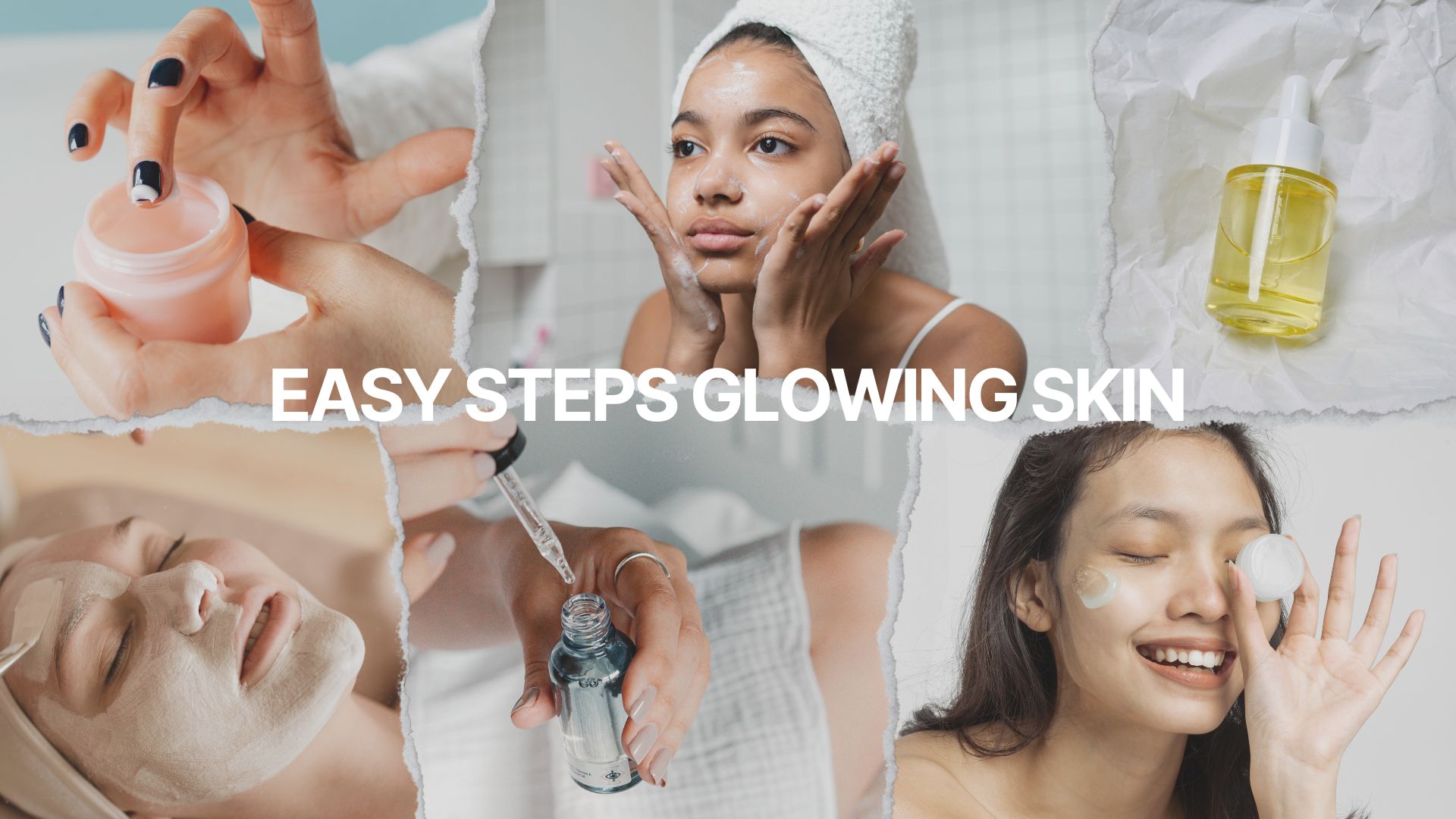Have you ever wondered what your skin wants? Knowing your skin type is crucial to managing skin issues like acne and achieving clean, smooth, and radiant skin.

Even though your skin type is unique to you, it typically falls into one of five categories: Normal, Combination, Oily, Dry, or Sensitive Although heredity plays a major role in determining your skin type, daily activities and environmental factors can also have a big impact. But how can one determine what type of skin they have?
Here are two highly precise methods you can use at home to identify your skin type:
The Bare-Faced Method
Find out what skin you have here: Give your face a good cleansing, then pat dry. After 30 minutes, please don’t use any creams; your skin will naturally restore itself. And look at your skin. Does it have an oily, dry, normal texture, or Combination?
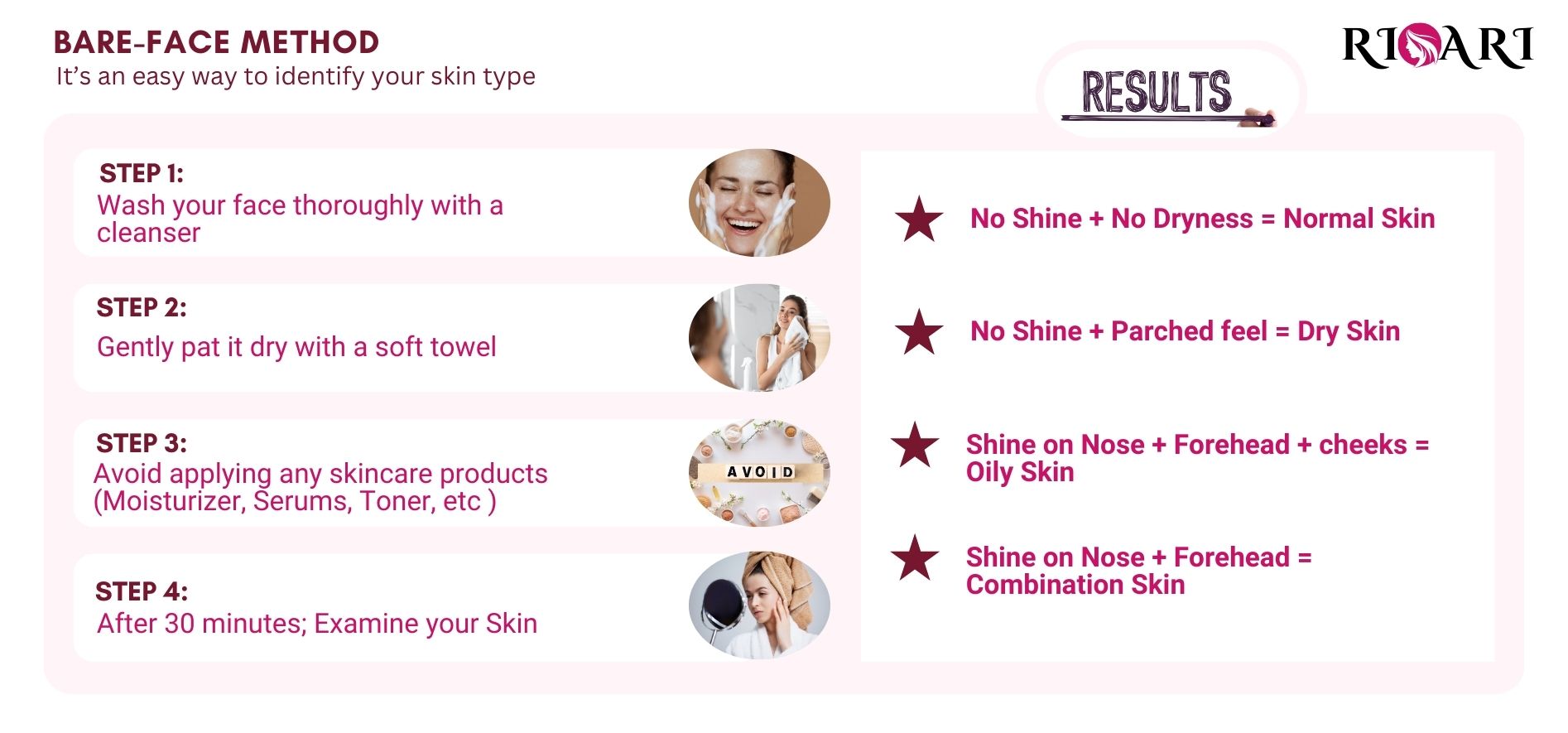
The Blotting Sheet Method
Comparing oily and dry skin types can typically be done considerably more quickly with this strategy. Use a gentle cleanser to completely clean your face, then pat it dry gently. Pat various parts of your face with a blotting paper, gently. Take a separate sheet and use it over your nose and forehead. Check the amount of oil visible by holding the sheet up to the light. You most likely have dry skin if the sheet picks up very little to no oil. If the forehead and nose regions of your skin show oil on the blotting sheet, your skin type is Combination or normal. Lastly, there’s a good chance you have oily skin if the blotting paper is drenched with oil.
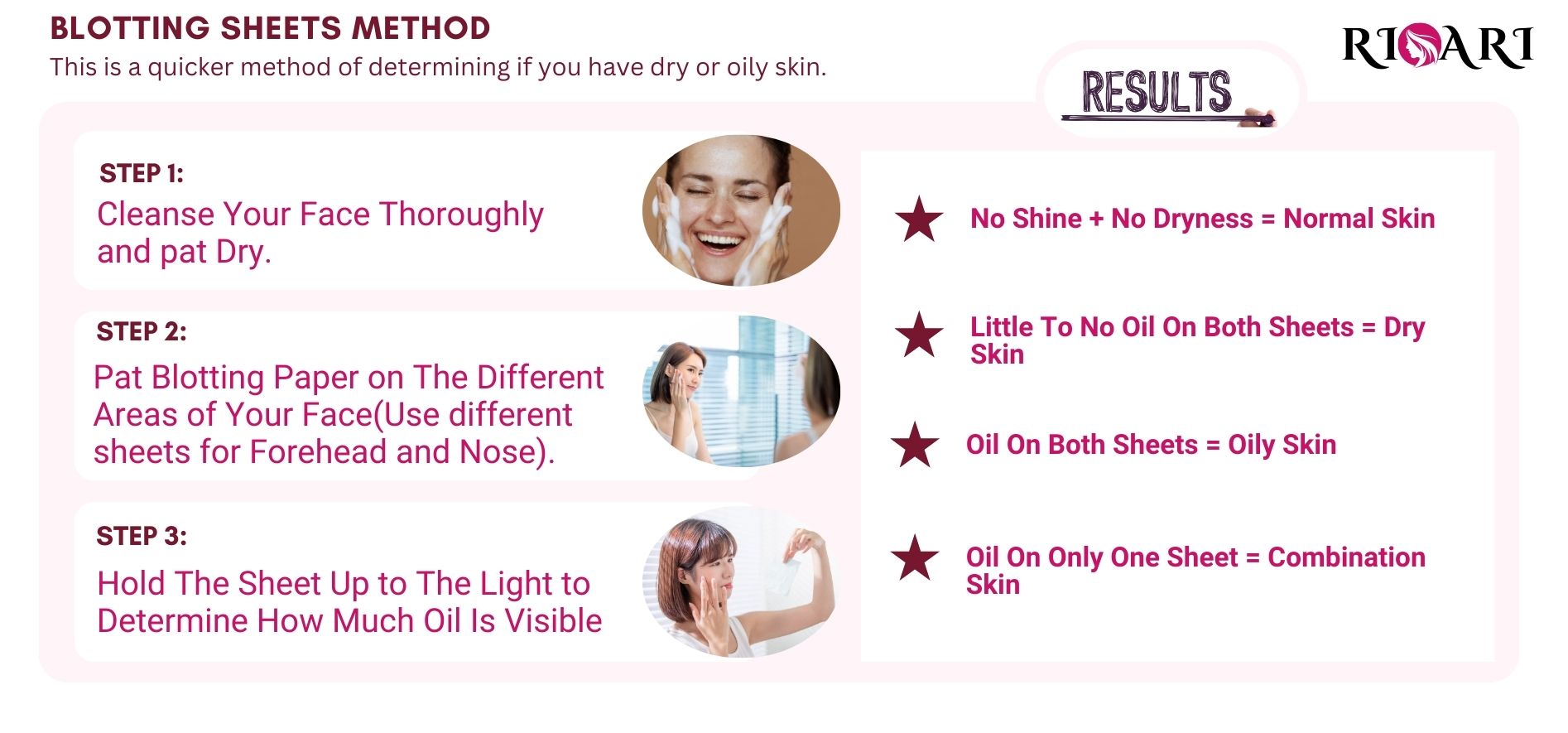
Normal Skin
Since normal skin is naturally balanced, it still needs to be properly cared for to maintain its health and prevent potential problems. Consistent skin care routines, protecting the skin from sun damage, and leading a healthy lifestyle can help preserve the natural glow and balance of normal skin. People with normal skin typically experience few imperfections, minimal sensitivity, Balanced Oil Production, Even Texture, Good Circulation, Resilience, and a radiant complexion.

Oily Skin
Excess sebum production is the hallmark of oily skin, which results in pores that are larger and more shiny, especially in the T-zone (forehead, nose, and chin). Despite being prone to acne, blackheads, and clogged pores, this skin type benefits from its natural moisture, which can slow the signs of aging. To manage oily skin, use gentle cleansers, non-comedogenic moisturizers, and regular shaving to prevent breakouts. To maintain a clear, healthy complexion, balance oil production and keep skin clean and moisturized.

Dry Skin
Tight, rough skin can have flaking, itching, redness, and small cracks. It can also take on an ashy gray look. It retains moisture insufficiently because it produces less sebum than normal skin. Dry skin is frequently brought on by aging, specific components in skincare products, high temperatures inside, a lack of natural moisturizing agents, and over exfoliation. Pick moisturizers containing hyaluronic acid, glycerin, ceramides, and fatty acids to help treat dry skin.

Combination Skin
Both dry and oily skin types can be found on combination skin; oily skin types are usually found on the T-zone (forehead, nose, and chin); normal to dry skin types are found on the U-zone (cheeks, mouth, and eyes). To treat combination skin types, apply a thicker moisturizer to dry areas and a lighter, oil-free moisturizer to oily areas. You can also use the multi-masking technique, which involves applying different products to different areas of your face to suit each skin type.

Sensitive Skin
Sensitive skin is frequently bothered by environmental factors, skin care products, and stress. Signs frequently appear as greensickness, itchiness, blankness, and discomfort. People with sensitive skin can react to spices, colorings, and harsh constituents, causing vexation and rashes. This skin type requires gentle, hypoallergenic products that are free of annoyances. A simple skincare routine with calming constituents like aloe vera, chamomile, and hyaluronic acid can help soothe perceptivity. To help prevent rashes and maintain healthy, balanced skin, it’s also important to protect your sensitive skin from extreme rainfall conditions, pollution, and the sun.

Effective skincare starts with knowing your specific skin type. You may acclimate your authority to suit your skin type — unctuous, dry, combination, or sensitive — by relating these characteristics. This not only improves the appearance and health of your skin, but it also wards against typical problems like vexation, blankness, and flight. Be beyond any doubt that skincare requires consideration and personalization; there’s no one-size-fits-all arrangement. Understanding your skin sort will permit you to select the finest skincare items and schedules for a brilliant, sound complexion. Acknowledge and regard your skin’s unity.

